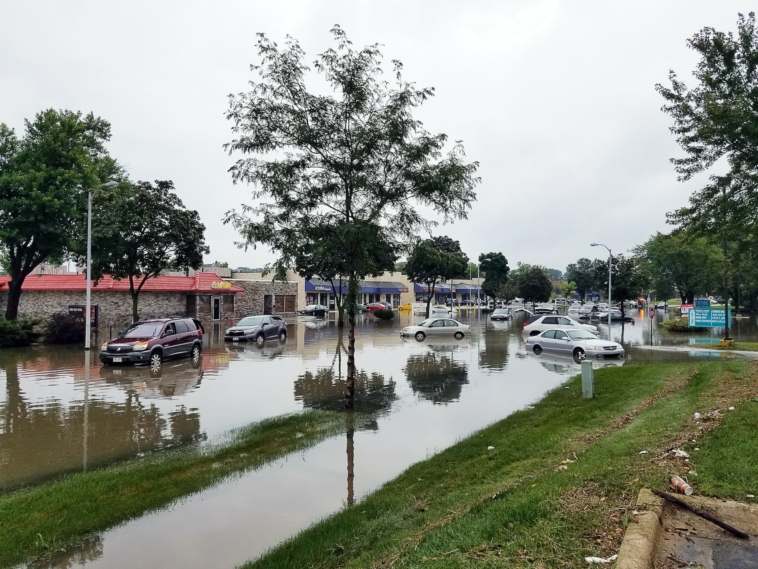As substantiated by NOAA’s Office for Coastal Management data, the cumulative cost of weather and climate-related disasters in the U.S. from 1980 to 2023 has reached an astonishing $2.6 trillion.
This staggering statistic underscores the increasing intensity and frequency of such events, further amplified by climate change, and highlights the considerable risk they pose to homeowners.
This article provides a comprehensive guide for effectively managing finances in the face of such difficult circumstances, safeguarding your home and financial well-being.

Reassessment of Your Financial Strategy If You Have Home Equity Loans
If your property has incurred substantial damage that has diminished its value, or if you’re preparing for a prolonged period of economic uncertainty, reevaluating your financial strategy becomes imperative. This holds especially true if you have specialized financial commitments, like a reverse mortgage tied to your property.
In scenarios like these, you have various options to explore. Refinancing could offer you more advantageous terms, such as reduced interest rates or a more flexible payment plan, easing some of your financial stress. On the other hand, if you’re facing severe conditions like a sharp decline in your property’s value or grim economic projections, selling the property may emerge as a necessary course of action.
To that end, liquidating the asset could allow you to settle the reverse mortgage and free up capital for other pressing needs. Seeking advice from financial advisors is strongly recommended due to the intricate nature of these financial choices. They can clarify your options, helping you make decisions that are best suited for your unique financial circumstances.
At the same time, it’s crucial to keep an open dialogue with your lender. They can offer alternative solutions and give you a comprehensive understanding of the risks involved, empowering you to make wise financial choices in difficult situations.
The Role of Public Adjusters When Dealing With Insurance
Maintaining sufficient insurance coverage for your property is a contractual requirement for most loan options. In the aftermath of a disaster, this coverage becomes invaluable. Navigating insurance claims can be intricate and taxing, necessitating the expertise of public adjusters, particularly when dealing with insurance companies.
These licensed professionals advocate on your behalf, facilitating negotiations with your insurer to secure optimal settlements. Their role is distinct from that of insurance company adjusters, as they exclusively represent your interests. Timely filing of claims and informing all relevant parties, including your lender and public adjusters, is crucial.
Government Assistance
In the face of extreme adversities, such as cataclysmic natural events or sweeping economic crises, federal and occasionally state-level relief mechanisms may become available to those adversely affected. These relief programs are meticulously designed to offer comprehensive support, from grants specifically allocated for home restoration to provisional housing solutions for individuals whose residences have been rendered uninhabitable.
Usually, these programs kick in when the government officially declares a state of emergency. After that happens, agencies like FEMA and HUD start rolling out help. This could be anything from low-interest loans aimed at property restoration to subsidies for temporary housing and immediate financial aid for basic necessities like food and clothing.
The eligibility prerequisites for availing of these programs are often multifaceted, generally necessitating verification of property ownership, income substantiation, and a thorough evaluation of the incurred damages. The urgency of prompt application cannot be overstated, given the potential existence of application deadlines and variable processing timelines.

Financial Planning and Emergency Funds
Financial advisors universally advocate for the creation of an emergency fund, advising that it should hold enough to sustain at least three to six months of living expenses. This financial buffer is more than just a comfort; it’s a strategic reserve that can be a lifesaver in times of crisis.
Whether you’re dealing with sudden property repairs, unexpected medical bills, or even fluctuations in loan interest rates, this fund provides you with the financial flexibility to manage these challenges without derailing your regular financial commitments. In the context of a reverse mortgage, for example, having such a fund can be especially crucial, as it can help you keep up with any loan-related obligations and significantly mitigate the risk of entering foreclosure proceedings.
Legal Advice
The complexities of managing finances during a crisis can be daunting, should you find yourself at risk of foreclosure or struggling to meet your mortgage terms.
Attorneys specializing in property and financial law can offer invaluable insights and guide you through your available legal avenues, potentially negotiating more favorable terms with your lender.
Family and Community Support
The significance of a robust support network is paramount, particularly during challenging periods. Support from family and the community can manifest both emotionally and financially. Such support can be invaluable, whether it’s familial assistance in navigating insurance claims or community aid in home repairs.
Numerous community organizations offer services ranging from pro bono legal counsel to food banks and temporary housing, serving as invaluable resources during crises.
Conclusion
Navigating the complexities that come during a crisis can be difficult. However, transparent communication with insurance companies and a robust support network are vital for successfully managing the crisis. Preparedness and informed decision-making are your most reliable allies in any challenging situation.



